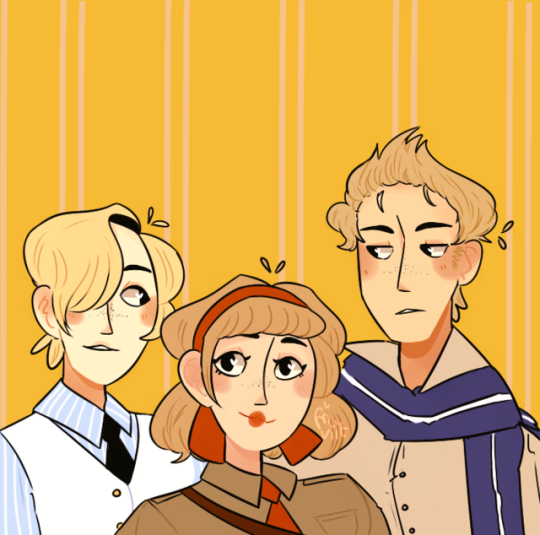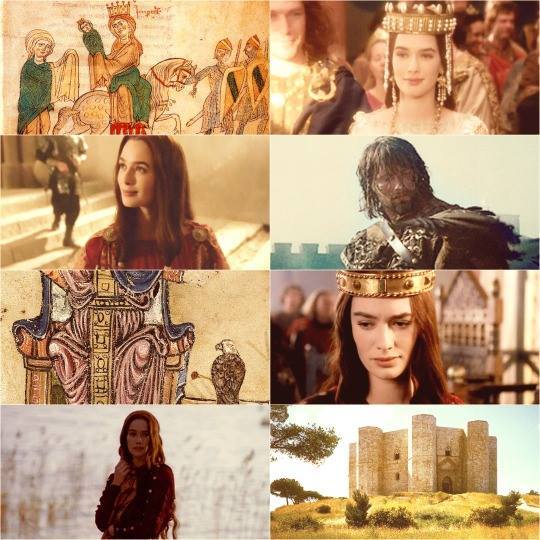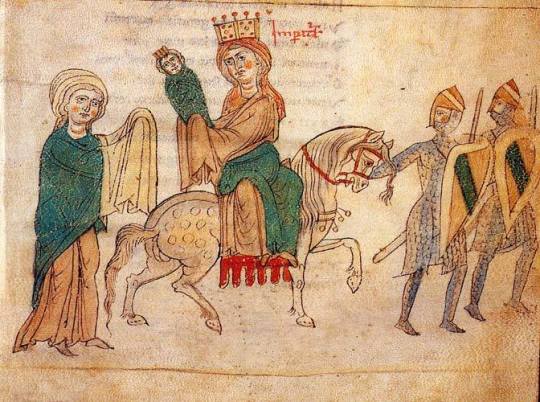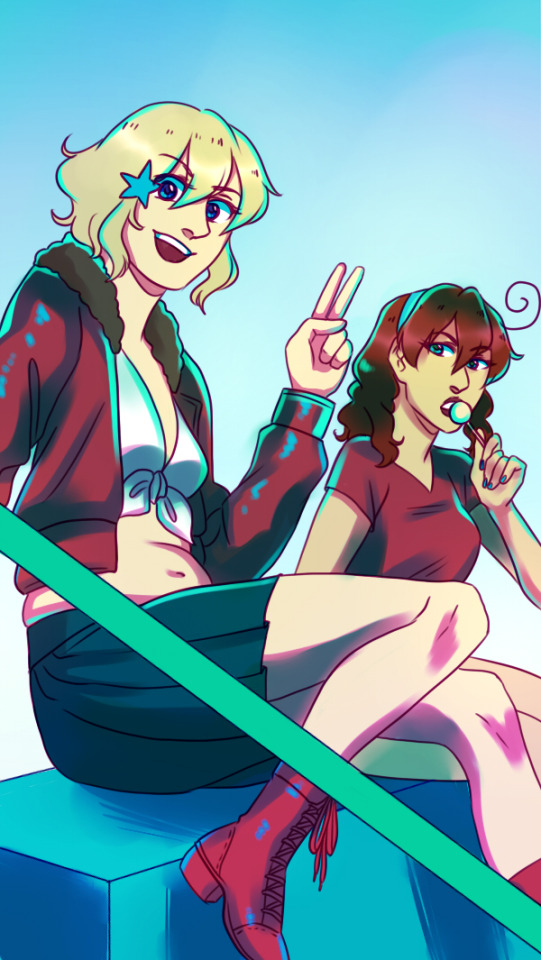Photo

the human heart 𝓑𝓔𝓐𝓣𝓢 approximately 4,000 times per hour
and each 𝒫𝒰𝐿𝒮𝐸 , each 𝓣𝓗𝓡𝓞𝓑, each PALPITATION
is a TROPHY engraved with the words
‘𝘺𝘰𝘶 𝘢𝘳𝘦 𝘴𝘵𝘪𝘭𝘭 𝘢𝘭𝘪𝘷𝘦.’ 𝕐𝕆𝕌 𝔸ℝ𝔼 𝕊𝕋𝕀𝕃𝕃 𝔸𝕃𝕀𝕍𝔼.
ACT LIKE IT
ind. dragon age oc. demon researcher/hunter, Aoife Valnora.
semi-selective, multiverse
( ABOUT. ) ( RULES. ) ( HISTORY. ) ( VERSES. ) ( NAVI. )
26 notes
·
View notes
Text
so i fully just don’t exist here anymore even though i love you and stalk you all from my personal blog ( i see old friend is back; hi old friend ) so!! add me on discord?? Act5Scene9#6721
i’m testing the DA fandom apparently but maybe once my shits together i can return my beautiful baby girl carina instead of my disaster daughter aoife
5 notes
·
View notes
Text
back! Had some heavy duty assignments last couple weeks plus some travel so didn’t have a lot of time but I’m here again
3 notes
·
View notes
Quote
I desired to give voice to my flesh, to learn to live as a woman. To do that, I had to spit the stones that were in my mouth. I had to become a ghost, enter my own flesh.
Meena Alexander, from “Fault Lines,” originally published c. March 1993
1K notes
·
View notes
Photo

benelux
704 notes
·
View notes
Photo


Constance of Hauteville was the sole heiress of the Norman kings of Sicily. She was Queen of Sicily from 1194 to 98, first jointly with her husband, Henry VI, Holy Roman Emperor, from 1194 to 1197, and later with her infant son Frederick II, Holy Roman Emperor. As the wife of Henry she also bore the title of Empress Consort of the Holy Roman Empire from 1186 to 1197.
Constance was the posthumous daughter of King Roger II of Sicily by his third wife Beatrice of Rethel and was born on 2 November 1154 in Palermo. Constance was not betrothed until she was 30, which is unusual for a princess whose marriage was an important dynastic bargaining chip. This later gave rise to stories that she had become a nun and required papal dispensation to forsake her vows and marry (this version is also supported by Dante Alighieri in the Divine Comedy, Paradiso, Canto III, lines 109-120).
The death of her younger nephew Henry of Capua in 1172 made Constance heiress presumptive to the Sicilian crown, after her elder nephew King William II, who did not marry until 1177, and whose marriage remained childless. Abulafia (1988) points out that William did not foresee the union of German and Sicilian crowns as a serious eventuality; his purpose was to consolidate an alliance, with an erstwhile enemy of Norman power in Italy. But it is unclear why he delayed so in finding a husband for his aunt.
Nevertheless, in 1184 Constance was betrothed to Henry of Hohenstaufen (the future Emperor Henry VI), and they were married two years later, on 27 January 1186.
The papacy, also an enemy of the emperors, would not want to see the kingdom of southern Italy (then one of the richest in Europe) in German hands, but Henry pressed Pope Celestine III to baptize and crown his son: the Pope put him off. Nor would the kingdom’s Norman nobles welcome a Hohenstaufen king. William made his nobles and the important men of his court promise to recognize Constance’s succession if he died without direct heirs. But after his unexpected death in 1189, his cousin (and Constance’s nephew) Tancred of Lecce seized the throne. Tancred was illegitimate, but he had the support of most of the great men of the kingdom.
Constance’s father-in-law died in 1190, and the following year Henry and Constance were crowned Emperor and Empress. Constance then accompanied her husband at the head of a substantial imperial army to forcefully take the throne from Tancred. The northern towns of the kingdom opened their gates to Henry, including the earliest Norman strongholds Capua and Aversa. Salerno, Roger II’s mainland capital, sent word ahead that Henry was welcome, and invited Constance to stay in her father’s old palace to escape the summer heat. Naples was the first time that Henry met resistance on the whole campaign, holding well into the southern summer, by which time much of the army had succumbed to malaria and disease and the imperial army was forced to withdraw from the kingdom altogether. Constance remained in Salerno with a small garrison, as a sign that Henry would soon return.
Once Henry had withdrawn with the bulk of the imperial army, the towns that had supposedly fallen to the Empire immediately declared their allegiance to Tancred, for the most part now fearing his retribution. The populace of Salerno saw an opportunity to win some favour with Tancred, and delivered Constance to him in Messina, an important prize given that Henry had every intention of returning. However, Tancred was willing to give up his negotiation advantage, that is, the Empress, in return for Pope Celestine III legitimising him as King of Sicily. In turn, the Pope was hoping that by securing Constance’s safe passage back to Rome, Henry would be better disposed towards the papacy and he was still hoping to keep the Empire and the Kingdom from uniting. However, imperial soldiers were able to intervene before Constance made it to Rome, and they returned her safely across the Alps, ensuring that in the end, both the papacy and the kingdom failed to score any real advantage in having the Empress in their custody.
Henry was already preparing to invade Sicily a second time when Tancred died in 1194. Later that year he moved south, entered Palermo unopposed, deposed Tancred’s young son William III, and had himself crowned instead.
While Henry moved quickly south with his army, a pregnant Constance followed at a slower pace. On 26 December, the day after Henry’s crowning at Palermo, she gave birth to a son, Frederick (the future Emperor and king of Sicily Frederick II) in the small town of Iesi, near Ancona. Constance was 40, and she knew that many would question whether the child was really hers. Thus she had the baby in a pavilion tent in the market square of the town, and invited the town matrons to witness the birth. A few days later she returned to the town square and publicly breast-fed the infant (as you can read in Giovanni Villani’s chronicle).
Henry died in 1197. The following year Constance had the three-year-old Frederick crowned King of Sicily, and in his name dissolved the ties her late husband had created between the government of Sicily and of the Empire. She adopted very different policies from those of her late consort. She surrounded herself with local advisors and excluded the ambitious Markward von Anweiler from a position of power and attempted to restrict him to his fief in Molise. She made no mention of any claims to the German kingship and empire when her son was anointed and crowned at Palermo, May 1198; Constance made warm overtures to the new pope Innocent III, abandoning the long-contended principle that the king was the apostolic legate, a central principle of Norman autonomy in the regno. Faced with the dangers that surrounded any child-king, Constance placed Frederick under the protection of Pope Innocent III. She expected him to be raised as a Sicilian, and to be nothing more than King of Sicily, without distracting claims to Germany or even to the title “King of the Romans” to which her brother-in-law Philip of Swabia was acclaimed by the Roman nobles. That he became much more than that could not be predicted when she died in late November 1198. In her will she made Innocent, who was the child’s feudal suzerain, his guardian, a reminder to all of the inviolability of his inheritance.
Frederick II became one of the most powerful and significant monarch of the European Middle Ages. During his life he became King of Sicily, King of the Romans, Holy Roman Emperor, King of Italy and King of Jerusalem. Frederick was also an avid patron of science and the arts: he played a major role in promoting literature through the Sicilian School of poetry.
142 notes
·
View notes
Text
we may be sentient
but we are not humans
196 notes
·
View notes
Photo

88 notes
·
View notes
Note
🌟
For every 🌟 I receive, I’ll share one fun fact about the muse.
She has a very love-hate relationship with her job. On one hand she loves being outside and walking people through the beauty of her home. On the other hand, a lot of tourists bring children and while she loves them, they do not appreciate what she’s trying to teach them. Her favourite groups are either history nerds (god does she love them) working on papers, or people trying to ‘find themselves’ because they will do literally anything suggested. It may mean she messes with them a little bit more.
1 note
·
View note
Note
🌟
For every 🌟 I receive, I’ll share one fun fact about the muse.
Carina’s a very tactile person when it comes to people she’s close too. Playing with their hair, holding their arm, touching their face. To some extent it’s unconsciously because she’s afraid to lose people and being able to touch them reminds her that they’re there. Mostly it just brings her comfort.
If she doesn’t know them though she’d rather they stay five feet away from her.
0 notes
Note
🌟 !
For every 🌟 I receive, I’ll share one fun fact about the muse.
Carina has some trouble with reading. It’s just hard to get her to sit down and actually absorb anything that way, so she just doesn’t really do it. Not to say she can’t, she’s just bad at it. Languages of course have some play in it as well. She’d never sit down and read a novel in French but she could probably handle one in Greek although it will take her a considerably long time to get through it.
0 notes
Note
🌟
For every 🌟 I receive, I’ll share one fun fact about the muse.
Carina spent the past four years working on an art study strictly centered around tattoos and how to design them. Was it just so she could spend days drawing half naked muscular men? A little bit.
The study could use more diversity.
1 note
·
View note
Text
For every 🌟 I receive, I’ll share one fun fact about the muse.
5K notes
·
View notes
Text
terradisirene:
I don’t believe you but I guess you do got a point. A lotta people don’t even get what the fuck good art is. They just see something and probably think its good art cause everyone else says so. Wait, what kind of art did he have? Like was it abstract or sculpture or what?
-He wouldn’t consider himself a major art excerpt but he has a good knowledge of it and he does love it-
Was the food any good at least?
I will but you better eat every damn thing I give you. -Or he’ll eat it himself, and then he starts to take out ingredients from the fridge- I want the beach more but if it’s opera I want a funny one or….um, I was gonna say something sad too but fuck, that’s like all of ‘em. I guess I don’t give a shit which opera we see if we see one. You pick.
It was abstract, but not even the good abstract where there was effort put in to make it still mean something even though it’s completely at odds with itself. [ As she sounds pretty irritated here, she moves to get out of the way and sit herself on the counter. Honestly? Although her intentions are good she may still be a little in the way. ] It was like the single dot on a canvas ‘this symbolized how we’re all just dust in an unkind universe’ level pretentious abstract.
[ And a heavy sigh. ]
The food was fine, mostly I was there for the free wine which was okay. It was from a vineyard near Turin.
I’m sure your food is better than anything they could have served there. [ She’ll be exceptionally sweet if it means he’ll feed her. ] We could just do both the beach and the opera if the weathers good. If not you could stay a few days?
23 notes
·
View notes



